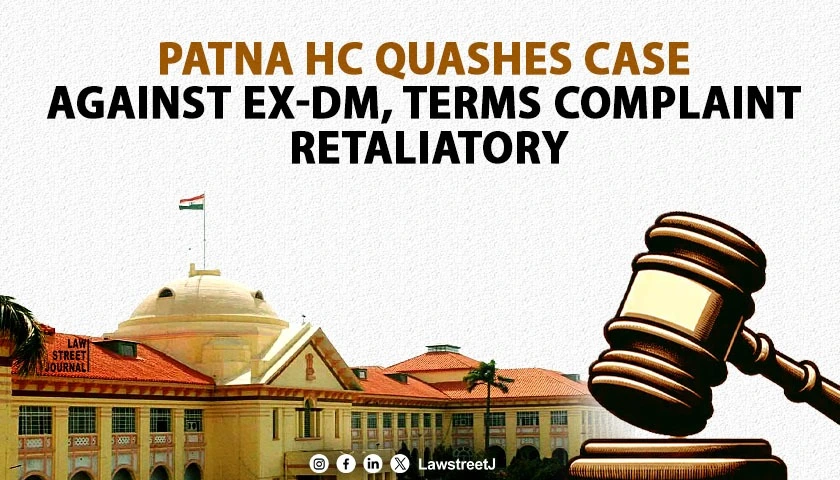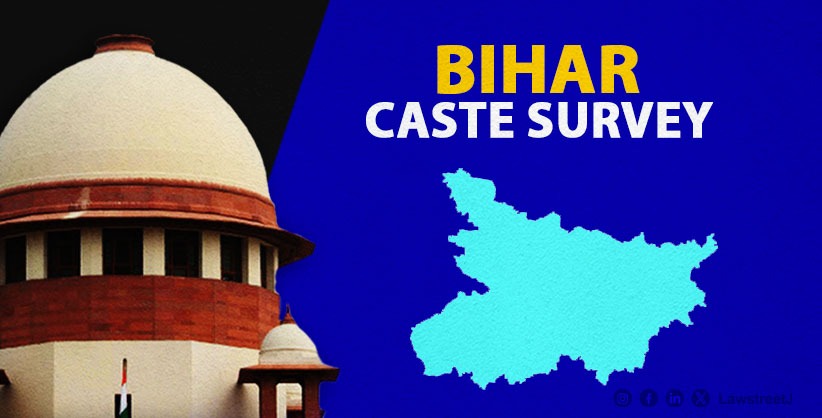Patna: The Patna High Court has quashed criminal proceedings against former Bettiah District Magistrate Dilip Kumar, holding that the charges levelled against him by a local advocate were “retaliatory, vexatious, and an abuse of process” arising from the management of communal tensions in 2008.
Justice Sourendra Pandey delivered the judgment on September 4, 2025, in Criminal Miscellaneous No. 4237 of 2025 (Dilip Kumar vs. The State of Bihar & Others), emphasizing the protection afforded to public servants discharging official duties under Section 197 of the Criminal Procedure Code.
The complaint, filed by advocate Brajraj Srivastava, alleged offences under Sections 295-A, 298, 323, 342, 427, 500, and 504 of the Indian Penal Code against the former District Magistrate. It arose from a Peace Committee Meeting held on August 12, 2008, convened to address communal tensions between Hindu and Muslim communities over the use of disputed land in West Champaran.
Dilip Kumar, an IAS officer of the 1995 Punjab cadre, had been deputed to Bihar to serve his home state during an acute shortage of officers. The court noted his “outstanding annual confidential report” and reputation for “integrity, honesty, and impeccable character.”
The dispute centered on vacant public land in village Karnemya, used by both communities for religious festivals—the Muslim minority’s annual Tajiya festival and the Hindu majority’s Mahavir Flag Day. Justice Pandey observed:
“In the year 2008, the Hindu community, after concluding the Mahaviri Flag March, proceeded to install an idol of Lord Hanuman at the disputed site, which the minority Muslim community perceived as an attempt to claim and occupy the land.”
In response, the State Home Department issued urgent directives on August 7, 2008, instructing the District Magistrate to treat the matter as “extremely urgent” and to prevent deterioration of law and order.
During the Peace Committee Meeting, Srivastava allegedly disrupted proceedings by questioning the meeting’s legitimacy and using “insulting, derogatory, abusive” language against the Muslim community. The court noted:
“Opposite party no. 2 and others began to throw and hurl vacant chairs lying in the Office of the District Magistrate and made every attempt to interrupt and disrupt the proceedings.”
An FIR was registered against Srivastava and his accomplices, leading to their arrest. However, multiple independent records contradicted his allegations of assault. The Additional Chief Medical Officer’s report of August 12, 2008, found “no well-defined injury,” and the Jail Superintendent recorded “no medical complaint whatsoever” during his custody.
The court also identified a crucial contradiction: Srivastava claimed assault at 9:30 PM in the police station, while court records showed he was already produced before the magistrate at 9:00 PM—rendering his version impossible.
Senior Advocate Mriganka Datta, representing Kumar, argued that the petitioner was “solely discharging responsibilities in his official capacity” and that the complaint was filed “as a counterblast and vindictive retaliation” ten days later.
Justice Pandey stressed constitutional safeguards for public servants:
“When allegations pertain to acts purportedly done in discharge of official duty, no cognizance can be taken by the Magistrate against a public servant without obtaining prior sanction of the Competent Authority, as mandated under Section 197 Cr.P.C.”
The court applied the Supreme Court’s test in Directorate of Enforcement vs. Bibhu Prasad Acharya, examining whether “the omission or neglect on the part of the public servant to commit the act complained of could have made him answerable for dereliction of duty.”
Finding that Kumar acted under State Home Department orders to maintain communal harmony, Justice Pandey concluded:
“The petitioner was performing his duty as District Magistrate of Bettiah, a town reeling under communal clashes between two communities. The actions attributed to the petitioner are integrally connected with the discharge of his official function.”
The court also noted Srivastava’s history of inciting communal violence, observing that in 2009 he was again arrested in connection with communal clashes, displaying a “routine and habitual” tendency to incite “acute violence on religious lines.”
Concluding that the complaint was “filed out of vengeance, in a retaliatory and vexatious attempt” after Srivastava’s release from custody, the High Court quashed the Sub-divisional Judicial Magistrate’s order of August 13, 2024, holding that “continuation of the criminal proceedings without requisite sanction would amount to abuse of process of law.”
Case Title: Dilip Kumar vs. The State of Bihar & Others



![Immediately stop caste-based survey: Patna High Court to Bihar Government [Read Order]](/secure/uploads/2023/05/lj_2614_70fde4fe-1b94-4360-a3d2-e162d6022c46.jpg)


![Supreme Court refuses pre arrest bail to IPS officer accused of creating fake WhatsApp account of HC's CJ [Read Order]](/secure/uploads/2023/11/lj_1575_Fake_WhatsApp_account_of_Patna_HC_Chief.jpg)




